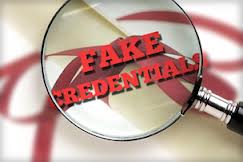 It all starts with financial advisors’ perception of investors. They know investors want financial experts helping them invest their assets. This creates a major marketing challenge for advisors with limited experience and credentials. They can’t make any money if they can’t convince investors they are financial experts.
It all starts with financial advisors’ perception of investors. They know investors want financial experts helping them invest their assets. This creates a major marketing challenge for advisors with limited experience and credentials. They can’t make any money if they can’t convince investors they are financial experts.
Perception is Real
In a Paladin Registry survey more than 95% of investors equated experience and credentials to expertise. The more experience the financial advisor has the more knowledge the advisor is supposed to have that helps investors achieve their financial goals. Credentials are the other primary source of financial knowledge – primarily certifications and designations that require substantial study, proctored examinations, and continuing education.
Experience Equals Knowledge
Advisors cannot do much about their years of experience. They may use a liberal definition of experience, but it is what it is. However, experience does not automatically bestow knowledge on advisors. For example, an advisor spends five years selling mutual funds for commissions. He does not learn much about investing because he does not need that knowledge to sell funds. In this example, his number one skill set is sales not investing.
Real and Fake Credentials
Financial advisors do have a lot of control over the credentials that appear after their names. Credentials create an opportunity and a dilemma for advisors. Real credentials can take years to acquire. For example, a CFA® takes three years. Years of study and tests do not have a positive impact on the advisor’s short-term production of revenue. In fact it can have a negative impact.
A readily available alternative is to buy credentials that require very little study and open book tests. It is like going to diploma mills for college degrees. In a matter of days or weeks they are in a position to market themselves as financial experts – except it is based on a lie.
Deception
There are no industry regulations that prevent this type of deceptive sales practice. That puts the responsibility squarely on the shoulders of investors who are supposed to know enough to protect their own interests. However, very few investors take the time to research credentials to see if they are valid. They make a major mistake when they assume advisors are not allowed to use this deceptive sales practice.
Ethics
Only unethical advisors use deceptive sales tactics to gain control of investor assets. They are taking a big chance when they use this sales tactic. No investor would knowingly select an unethical advisor. However, it is a relatively safe tactic because investors do not know how to protect their own interests.
Check a Credential
What if there was an easy way to catch advisors who use fake credentials? You could use this breach of ethics to avoid them. Go to Check a Credential on www.PaladinRegistry.com. This free Paladin service produces reports and peer group quality ratings for more than 200 certifications and designations.
Other posts from Jack Waymire
Paladin’s Registry of Financial Advisors is a Free Service for Investors
The world’s first financial advisor directory was the Yellow Pages®. All you had to do was thumb through...
How to Find the Best Financial Advisors
Your first step is to determine the criteria you will use to identify and select the best financial...
What is an Investment Performance Benchmark?
A Benchmark is a performance goal. Your advisor is paid to produce results that beat the performance of...





